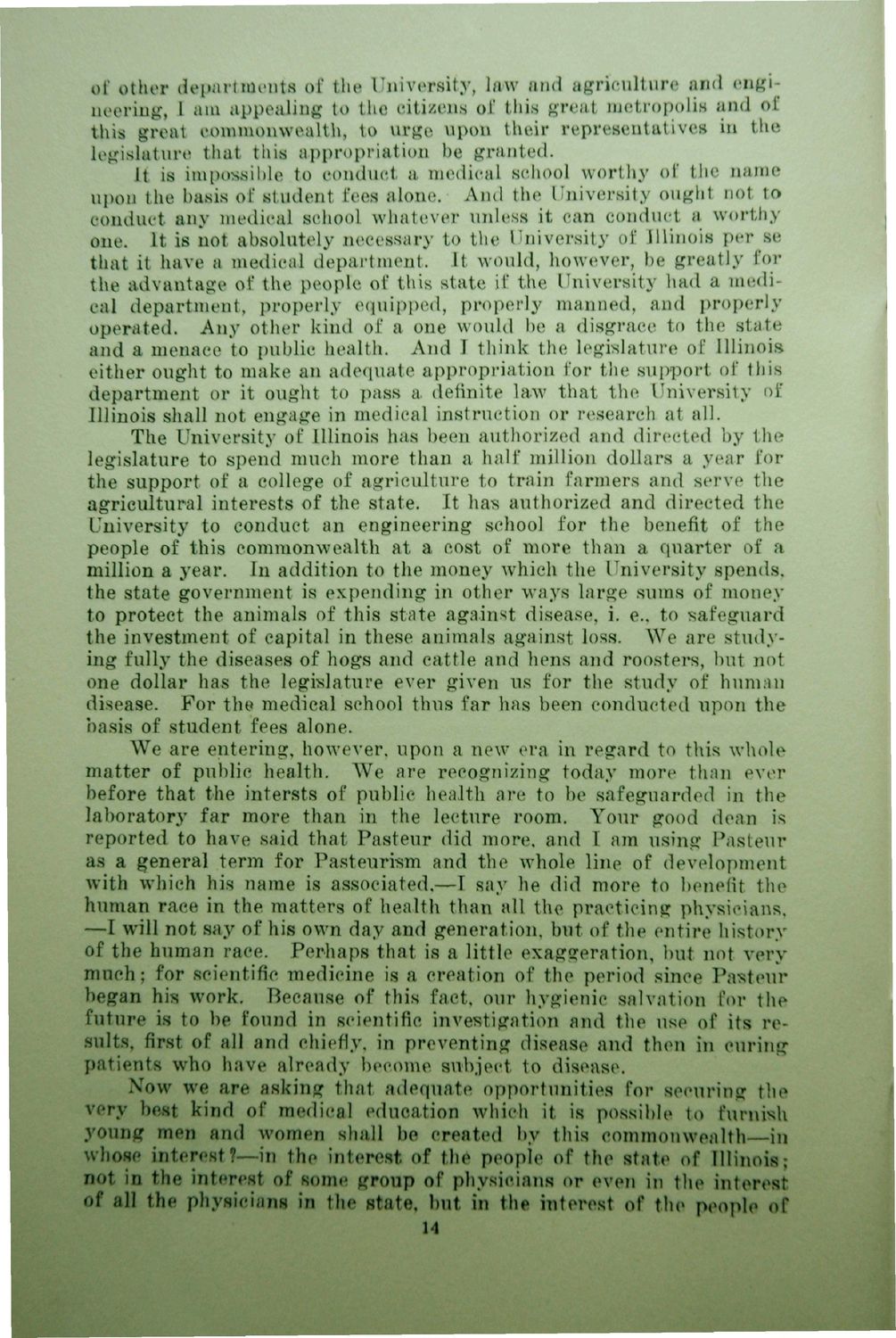| |
| |
Caption: Dedication - Chicago Medical Center Reopening
This is a reduced-resolution page image for fast online browsing.

EXTRACTED TEXT FROM PAGE:
of other departments of the University, law and agriculture and engineering! I am appealing to the citizens of this great metropolis and of this great eonnnouwealth, to urge upon their representatives in the legislature that this appropriation be granted. Li ia impossible .to conduct a medical school worthy of the name upon the basis of student fees alone. And the University ought not to conduct any medical school whatever unless it can conduct a worthy one. It is not absolutely necessary to the University of Illinois per se that it have a medical department. It would, however, be greatly for the advantage of the people of this state if the University had a medical department, properly equipped, properly manned, and properly operated. Any other kind of a one would be a disgrace to the state and a menace to public health. And I think the legislature of Illinois either ought to make an adequate appropriation for the support of this department or it ought to pass a definite low that the University of Illinois shall not engage in medical instruction or research at all. The University of Illinois has been authorized and directed by the legislature to spend much more than a half million dollars a year for the support of a college of agriculture to train farmers and serve the agricultural interests of the state. It has authorized and directed the University to conduct an engineering school for the benefit of the people of this commonwealth at a cost of more than a quarter of a million a year. In addition to the money which the University spends, the state government is expending in other ways large sums of money to protect the animals of this state against disease, i. e.. to safeguard the investment of capital in these animals against loss. We are studying fully the diseases of hogs and cattle and hens and roosters, but not one dollar has the legislature ever given us for the study of human disease. For the medical school thus far has been conducted upon the basis of student fees alone. We are entering, however, upon a new era in regard to this whole matter of public health. We are recognizing today more than ever before that the intersts of public health are to be safeguarded in the laboratory far more than in the lecture room. Your good dean is reported to have said that Pasteur did more, and I am using Pasteur as a general term for Pasteurism and the whole line of development with which his name is associated,—I say he did more to benefit the human race in the matters of health than all the practicing physicians, —I will not say of his own day and generation, but of the entire history of the human race. Perhaps that is a little exaggeration, but not very much; for scientific medicine is a creation of the period since Pasteur began his work. Because of this fact, our hygienic salvation for the future is to be found in scientific investigation and the use of its results, first of all and chiefly, in preventing disease and then in curing patients who have already become subject to disease. Now we are asking that adequate opportunities for securing the very best kind of medical education which it is possible to furnish young men and women shall be created by this commonwealth—in whose interest?—in the interest of th6 people of the state of Illinois; not in the interest of some group of physicians or even in the interest of all the physicians in the state, but in the interest of the people of 14
| |